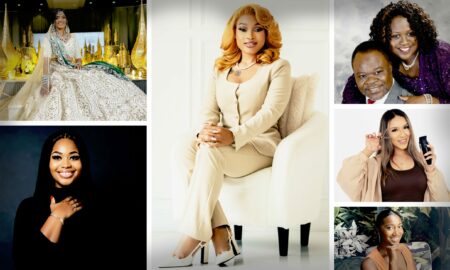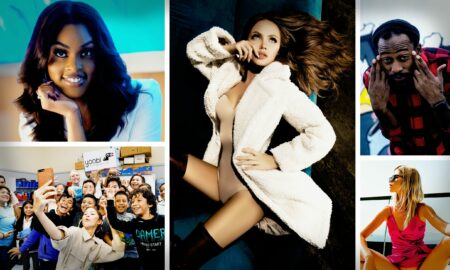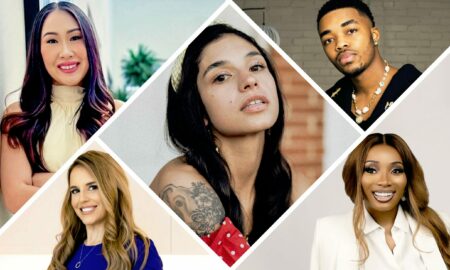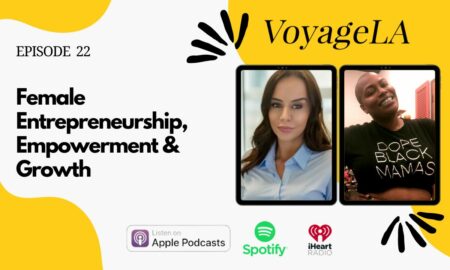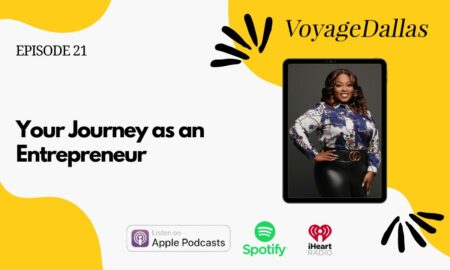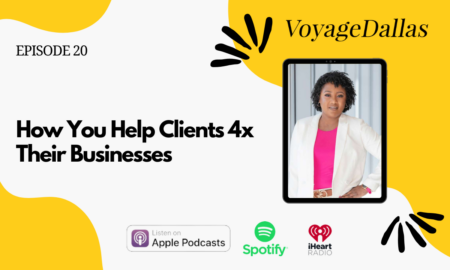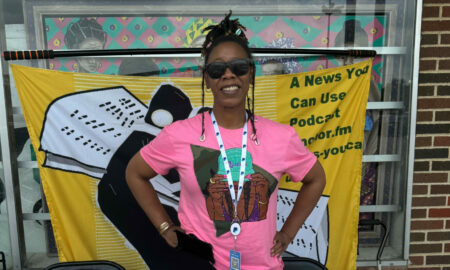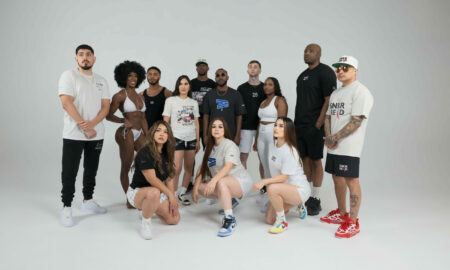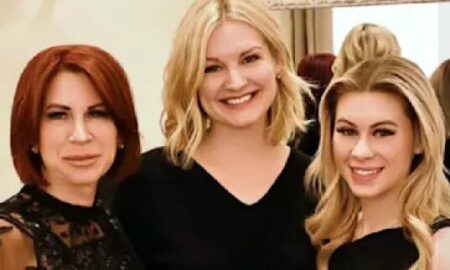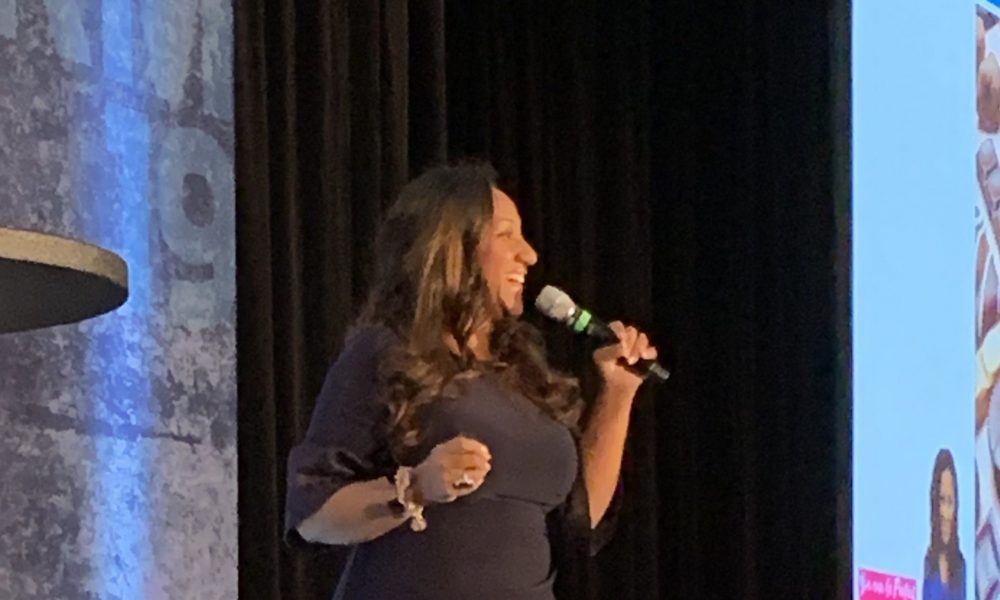

Today we’d like to introduce you to Karith Foster.
Karith, can you briefly walk us through your story – how you started and how you got to where you are today.
Growing up as a young Black woman in the predominantly white North Dallas suburb of Plano, Texas, it became evident early on there was a need for positive and constructive conversations around diversity so that the world Dr. Martin Luther King Jr. dreamed of long before my birth could come to fruition.
For the better part of my life, like Dr. King, I’ve found myself in front of others with the common goal of bringing people together. Whether it was from the loudspeaker of my high school, that was only 1% black, disseminating Black history nuggets in February to a career spanning journalism, television production (The View), or as an HR executive administrator in a NYC Fortune 500 company to showcase that we aren’t that different. Surprisingly, one of the most powerful ways I found to spearhead this message was through comedy and headlining shows across America, letting humor do what it does best- ingeniously and cathartically getting people to laugh, think and grow.
One of the most prominent positions I held, however, came when was when I was selected to join the nationally syndicated “Imus In the Morning Show” to help “diversify the cast” and help promote a dialogue about race in America. This came after Don Imus’ very public faux pas about the Rutgers women’s basketball team, which I have sardonically referred to as “Nappygate.”
While I believe the intention and sincerity to the right a wrong and have a genuine dialogue was there, it quickly waned. I share publicly in my TEDx Talk, “The Art of Defying Stereotypes: Learning To Be True To You Voice,” how that dream job quickly turned into the job from hell. After that eye-opening experience, coupled with my time in network television production and Corporate America, I saw how desperately far we still have to go.
Not long after I left the “Imus in the Morning Show” there was an incident involving a Rutgers student named Tyler Clemente. This young man took his own life by jumping from the George Washington Bridge after being cruelly outed by fellow students for being gay. My heart just broke for him, and all who have been in his shoes. No one should feel so alone or ostracized that taking your life is the only viable option you see. This was an “everyone” problem. We’ve all felt like we were “the only ones” at specific periods in our lives- this crosses all color lines, gender-identity, ethnic, and socio-economic barriers. That’s when I knew I had to do something more.
It’s so ironic that we live in a world that has become more connected daily via technology, and there is a seemingly authentic commitment to creating inclusive environments, yet we are still so tragically divided, and it seems to be worsening. But how could that be? Diversity and Inclusion workshops and training have become more prominent, even mandatory in many workplaces and on campuses across the country. There are major publications dedicated just to “diversity” at the helm providing guidance and tools to put an end to racism, homophobia, sexism, classism- and all the other other isms you could name. Yet, progress has been minimal.
What I realized is that it is not for lack of money or effort, but rather the wrong energy and tactics are being applied. We’ve been trying to tackle a problem from the outside in when the solution is to flip the script and work from the inside out. That’s how you affect real change.
When a body is sick, we say it has a disease. That’s what we’ve got going on in society: dis-ease. It’s what unconscious bias, conscious bias, and all the negative trappings that go along with it are. We know a body is unwell or fighting disease because there are signs- fever, rashes, inflammation. We also know that if we really want to treat a diseased body we have to go inside with medication, homeopathy or food to eradicate the illness. It’s the same with how we address issues of Diversity and Inclusion. If we are sincere about making things different then we can no longer treat it topically or from the outside. That’s where I enter, stage left, and with me the idea and methodology of Inversity™.
Inversity™ is what I teach to students, faculty, and staff on college and university campuses as well as corporations across the country. Inversity™ is about redefining diversity to include everyone in the conversation- not creating victims out of those in “marginalized groups” or villains out of those who don’t fit that category. It is also about honoring diversity of thoughts and ideas. Inversity™ is really quite simple and basic. It’s about shifting the way we’ve focused on the limited traditional way of viewing diversity in the past to one that is not constrained boundaries.
Even at the root of the word diversity is “divide/division” and that’s what we do when we talk about it in the traditional way. “We’re so different.” “We must address our vast differences.” “Everyone needs to acknowledge and be browbeaten by how different we are- only then can we make a difference in society.” How is that approach any better than people who demanded and fought for segregation?! When the primary message is one of focusing on what sets us apart, we’d be crazy to think the end result would be anything less than more division. It’s the law of attraction at it’s finest. What we focus on we get. We get what we focus on.
So it’s time to shift the focus from what separates and divides us to the ideals and methodology of Inversity™ by asking three simple questions. What do we have in common? How can we be truly inclusive of one another? And most importantly, how can we be more introspective- meaning understanding one’s value, worth, and connection to humanity. Because if you can see those things in yourself, you can then see the value, worth and humanity in someone else.
In 2017 I formed F.R.A.M.E. (Foster Russell Alliance for Meaningful Expression) a non-profit 501(c)(3) with the hopes of getting educational programming that promotes free speech, inclusion and social change to academic institutions around America and abroad because I feel the message of Inversity™ is critical if we want to live in a healthy progressive society where people feel valued, respected and loved.
Great, so let’s dig a little deeper into the story – has it been an easy path overall and if not, what were the challenges you’ve had to overcome?
Any time you have a new idea or way to approach something you’re going to be met with resistance. I can’t tell you how many people have said, “I get that you have a background in comedy, but how can you possibly use humor when talking about the atrocities of racism, sexism, homophobia, etc….” My reply is, “How do you not?!” The entire point of comedy is to point out and make fun of the absurd. And what is more absurd than people being fearful or hating other people for the color of their skin, how they were born, or who they love?”
I don’t give lectures I give an experience. With the work I do and the conversation I provoke I’m not coming from a place of tactical training. I’m coming from a place of love. Love for myself and my fellow human beings, and anytime that happens, there is also a respectable amount of vulnerability that has to come into play as well. That’s not always comfortable.
People like to be comfortable, and what I do isn’t always comfortable, but it’s effective. I know it’s effective because I see the people who were resistant in the beginning, sitting there with arms crossed and eyes glazed over prepping for another boring or dissociative lecture on “diversity” become engaged. I hear them laugh, I see the epiphanies and light bulbs over their heads go off when they have a new way of seeing something or saying something.
What continues to be a challenge for me is getting the word out that there’s a new way to solve an old problem, and it’s not your grandpa or your mama’s typical diversity training. Once people experience it, they’re beyond thrilled, so really, it’s just a matter of getting to the people who care enough to have programming that makes a difference – that’s more than just checking a box.
Please tell us about the organization.
I love being the CEO and Founder of F.R.A.M.E. because it encompasses everything I believe in at my core. My mission since I was a child was to bring people together under the umbrella of humanity. I know the tools and methods I use are unique and powerful. I promote free speech because it is critical if we’re truly going to reach one another on the deepest levels of communication. Inclusion is imperative for us to survive as a species. Social change is how we make the world a better place, one encounter, conversation, and heart at a time.
What makes my business special is that it’s more than a business; it’s a movement. I am so blessed to do what I love an LOVE what I do. I love traveling this amazing country- reaching people from all walks of life, and encouraging their growth, connectivity to one another and supporting their mental health and wellbeing. It is such a gift. I think that is what has been my driving force behind not only wanting a family of my own, but the powerful work I do.
All of my programming revolves around the idea of being and becoming your better self so that the time we have here on this planet with our friends, family, co-workers, and fellow humans is meaningful and celebrated.
Do you look back particularly fondly on any memories from childhood?
One of my favorite childhood memories is being the back patio in Denver (we lived there before I moved to Texas at 7) and watching the sunset over the Rocky Mountains. The colors were extraordinary- vibrant pinks mixed with orange, white, blue, and purple. I don’t know if I had the words for it back then, but I remember thinking those were only colors God could make. I used to call my mom out from doing dishes or whatever she was doing to watch with me. My other favorite childhood memories aren’t that exact, but I remember the best times of my childhood were laughing hysterically with either friends or my family. That’s what was my driving force behind wanting a family of my own.
Contact Info:
- Address: www.karith.com
- Email: karith@fosterrussell.org
-
Website: www.karith.com
-
LinkedIn: www.linkedin.com/in/
karithfoster -
Twitter: www.twitter.com/karithfoster
-
Facebook: www.facebook.com/FosterKarith
Please consider making a fully deductible contribution to Foster Russell Alliance for Meaningful Expression







Suggest a story: VoyageDallas is built on recommendations from the community; it’s how we uncover hidden gems, so if you or someone you know deserves recognition please let us know here.

